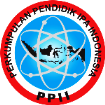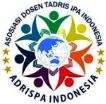Fostering Critical Thinking Skills and Scientific Epistemological Beliefs through Flipbook-Assisted POE2WE
Abstract
This research aims to improve critical thinking skills and Scientific Epistemological Beliefs (SEB) through Flipbook-Assisted Predict Observe Explain Elaboration Write Evaluation (POE2WE) learning model. Critical thinking and good SEB are educational mandates in the curriculum and 21st-century skills. This research was conducted in two classes, namely classes 7A and 7B at the SIKL. This research was a quantitative experiment using posttest-only nonequivalent group. The instruments used to collect data are critical thinking tests and SEB questionnaires. The results of the critical thinking test were analyzed using the Independent Sample T-test. The t-test results obtained were 0.89, greater than 0.05. The highest indicator of critical thinking ability is Basic Clarification with an average score of 91,37. Meanwhile, students SEB were reviewed from the results of filling out the questionnaire, the highest indicator obtained was source with a response of 56.9%. Thus, using the Flipbook-Assisted POE2WE model can significantly improve students' critical thinking skills and SEB.
Keywords: critical thinking skills, science epistemological beliefs (SEB), predict observe explain elaboration write evaluation (POE2WE), flipbook, 21st-century skills
Full Text:
PDFReferences
Ajayi, V. O., & Audu, C. T. (2021). In Search of Viable Pedagogy in Chemistry that could Improve Student ’ s Self- Confidence : A consideration of Predict-Observe- Explain-Elaborate-Write- Evaluate ( POE2WE ) or Discussion ... July.
Alfiyanti, I. F., Jatmiko, B., & Wasis. (2020). The Effectiveness of Predict Observe Explain ( POE ) Model with PhET to Improve Critical Thinking Skills of Senior High School Students. 1(2), 76–85.
Anton, & Trisoni, R. (2022). Konstribusi Keterampilan 4c Terhadap Projek Penguatan Propil Pelajar Pancasila pada Kurikulum Merdeka. Jurnal Ilmiah Pendidikan, 2(3), 528–535. https://doi.org/10.47709/educendikia.v2i3.1895
Ariadila, S. N., Silalahi, Y. F. N., Fadiyah, F. H., Jamaluddin, U., & Setiawan, S. (2023). Analisis Pentingnya Keterampilan Berpikir Kritis TerhadapPembelajaran Bagi Siswa. Jurnal Ilmiah Wahana Pendidikan, 9(20), 664–669.
Bano, V. O. (2022). Analisis Kriteria Butir Soal Ujian Sekolah Mata Pelajaran IPA di SMP Negeri 1 Waingapu. 145–152. https://doi.org/10.32884/ideas.v8i1.660
Djaja, D. K., Hikmah, N., Poiran, Wardany, K., Saleh, M., & Oktavia, A. (2023). Implementasi Kurikulum Merdeka Belajar dalam Meningkatkan Kemampuan Berpikir Kritis Mahasiswa. Jurnal Review Pendidikan Dan Pengajaran, 6(2), 270–278.
Djonomiarjo, T., & Patilanggio. (2018). Pengaruh Model Problem Based Learning Terhadap Hasil Belajar. Jurnal Ilmu Pendidikan Nonformal Aksar, 05, 39–46. http://ejurnal.pps.ung.ac.id/index.php/AKSARA/index
Ennis, R. H. (2015). The Nature of Critical Thinking: Outlines of General Critical Thinking Disposition and Abilities. Sixth International Conference on Thinking at MIT, 2013, 1–8. http://criticalthinking.net/wp-content/uploads/2018/01/The-Nature-of-Critical-Thinking.pdf.
Fakhri Akhmad. (2023). Kurikulum Merdeka dan Pengembangan Perangkat Pembelajaran : Menjawab Tantangan Sosial dalam Meningkatkan Keterampilan Abad 21. C.E.S (Confrence Of Elementary Studies), 1(1), 32–40.
Fitriani, A. (2020). PBLPOE : A Learning Model to Enhance Students ’ Critical Thinking Skills and Scientific Attitudes. 13(2).
Fitriyanti, D., & Suciptaningsih, O. A. (2024). Analisis Bahan Ajar Digital Berasis Heyzine Flipbook Terhadap Keterampilan Berpikir Kritis Pembelajaran Ipas Di Sekolah Dasar. 09.
Gagne, R. M., Basyir, M. S., Dinana, A., & Devi, A. D. (2022). Kontribusi Teori Belajar Kognitivisme David P . Ausubel dan. 7, 89–100.
Haniyah, Y. (2022). Perbandingan Model Pembelajaran Poe Dengan Novick Terhadap Kemampuan Pemahaman Konsep Ekonomi Siswa Kelas X Mipa. JOURNAL SCIENTIFIC OF MANDALIKA (JSM) e-ISSN 2745-5955 | p-ISSN 2809-0543, 3(6), 548–554. https://doi.org/10.36312/10.36312/vol3iss6pp548-554
Ishtiaq, M. (2019). Book Review Creswell, J. W. (2014). Research Design: Qualitative, Quantitative and Mixed Methods Approaches (4th ed.). Thousand Oaks, CA: Sage. English Language Teaching, 12(5), 40. https://doi.org/10.5539/elt.v12n5p40
Jamaludin, A. J., & Sriyansyah, S. P. (2023). An Experimental Comparison of a Problem-Based Learning and a POE-Assisted Project-Based Learning Model of Teaching Scientific Literacy. Journal of Natural Science and Integration, 6(1), 80. https://doi.org/10.24014/jnsi.v6i1.13279
Kampa, N., Neumann, I., Heitmann, P., & Kremer, K. (2016). Epistemological beliefs in science-a person-centered approach to investigate high school students’ profiles. Contemporary Educational Psychology, 46, 81–93. https://doi.org/10.1016/j.cedpsych.2016.04.007
Kemendikbudristek. (2017). Pembelajaran abad 21. Pembelajaran Abad 21 Yogyakarta, 276. https://opac.perpusnas.go.id/DetailOpac.aspx?id=1145389
Kismawati, R., Ernawati, T., & Winingsih, P. H. (2022). Pengembangan E-Komik Berbasis Heyzine Flipbook pada Materi Sistem Pencernaan bagi Peserta Didik Kelas VIII SMP. 6(November), 359–370.
Lin, T., Deng, F., Sing, C., & Tsai, C. (2013). International Journal of Educational Development High school students ’ scientific epistemological beliefs , motivation in learning science , and their relationships : A comparative study within the Chinese culture. International Journal of Educational Development, 33(1), 37–47. https://doi.org/10.1016/j.ijedudev.2012.01.007
Marhento, G. (2020). Model Pembelajaran POE ( Predict Observe Explain ) Solusi Alternatif Meningkatkan Hasil Belajar Ilmu Pengetahuan Alam. Prosiding Seminar Nasional Sains, 1(1), 267–272.
Muna, I. A. (2017). Model Pembelajaran POE (Predict-Observe- Explain) dalam Meningkatkan Pemahaman Konsep dan Keterampilan Proses IPA. Jurnal Studi Agama, 5(1), 73–91.
Nana, & Surahman, E. (2020). POE2WE Model as an Alternative for Learning Physics in Industrial Revolution 4.0 Era. 397(Icliqe 2019), 1013–1022. https://doi.org/10.2991/assehr.k.200129.125
Prasasti, R. D., & Anas, N. (2023). Pengembangan Media Digital Berbasis Flipbook Untuk Meningkatkan Kemampuan Berpikir Kritis Pada Peserta Didik. 4, 694–705.
Putri Kumalasani, M., & Eilmelda, Y. (2022). Analisis Efektivitas Penggunaan E-Modul Berbasis Aplikasi Flipbook Pada Pembelajaran Tematik Di SD. Jurnal Pemikiran Dan Pengembangan Sekolah Dasar (JP2SD), 10(1), 39–51. https://doi.org/10.22219/jp2sd.v10i1.20175
Sartini, & Mulyono, R. (2022). Analisis Implementasi Kurikulum Merdeka Belajar Untuk Mempersiapkan Pembelajaran Abad 21. Didaktik : Jurnal Ilmiah PGSD STKIP Subang, 8(2), 1348–1363. https://doi.org/10.36989/didaktik.v8i2.392
Schiefer, J., Edelsbrunner, P. A., Bernholt, A., Kampa, N., & Nehring, A. (2022). Epistemic Beliefs in Science—A Systematic Integration of Evidence From Multiple Studies. In Educational Psychology Review (Vol. 34, Issue 3). Springer US. https://doi.org/10.1007/s10648-022-09661-w
Septiany, L. D., Puspitawati, R. P., Susantini, E., Budiyanto, M., Purnomo, T., & Hariyono, E. (2024). Analysis of High School Students’ Critical Thinking Skills Profile According to Ennis Indicators. IJORER : International Journal of Recent Educational Research, 5(1), 157–167. https://doi.org/10.46245/ijorer.v5i1.544
Sofian Azhari et al. (2023). Model Pembelajaran POE (Predict-Observe-Explain) Terhadap Keterampilan Berpikir Kritis Siswa SMP Miftahul Khair NW Kabupaten Lombok Tengah. Otus Education, 1(2), 102–112.
Sugianto, D., Abdullah, A. G., Elvyanti, S., & Muladi, Y. (2017). Modul Virtual: Multimedia Flipbook Dasar Teknik Digital. Innovation of Vocational Technology Education, 9(2), 101–116. https://doi.org/10.17509/invotec.v9i2.4860
Tri Wulandari, & Adam Mudinillah. (2022). Efektivitas Penggunaan Aplikasi CANVA sebagai Media Pembelajaran IPA MI/SD. Jurnal Riset Madrasah Ibtidaiyah (JURMIA), 2(1), 102–118. https://doi.org/10.32665/jurmia.v2i1.245
Wulandari, S., Sawita, N., & Jambi, U. (2022). Efektivitas Blended Learning Berbasis Proyek Pada. 5(1), 211–221.
Yusni, D., & Supriatno, B. (2023). Analisis Kajian Inovasi Model Pembelajaran POE (Predict Observe Explain) Berbantuan Teknologi pada Pembelajaran Biologi. Biology and Education Journal, 3(1), 24–36.
Zhao, L., & Liu, X. (2021). Exploring The Effects On Fifth Graders’ Concept Achievement And Scientific Epistemological Beliefs: Applying The Prediction_Observation-Explanation Inquiry-Based Learning Model In Science Education. Journal of Baltic Science Education, 4, 664–676. https://doi.org/http://dx.doi.org/10.33225/jbse/21.20.664
DOI: http://dx.doi.org/10.24014/jnsi.v7i2.32666
Refbacks
- There are currently no refbacks.

Journal of Natural Science and Integration
E-ISSN: 2620-5092 P-ISSN: 2620-4967
Published By:
Department of Science Education, Faculty of Education and Teacher Training,
State Islamic University of Sultan Syarif Kasim Riau, Indonesia
Mailing Address:
Jl. H.R Soebrantas Km. 15 No. 155
Kelurahan Simpang Baru
Kecamatan Tuah Madani, Pekanbaru, Riau, Indonesia
Email: jnsi.tadrisipa@uin-suska.ac.id
Indexed By:
Journal of Natural Science and Integration is licensed under a Creative Commons Attribution 4.0 International License.


_-_Copyy2.png)






.jpg)
.png)
.jpg)
.jpg)




